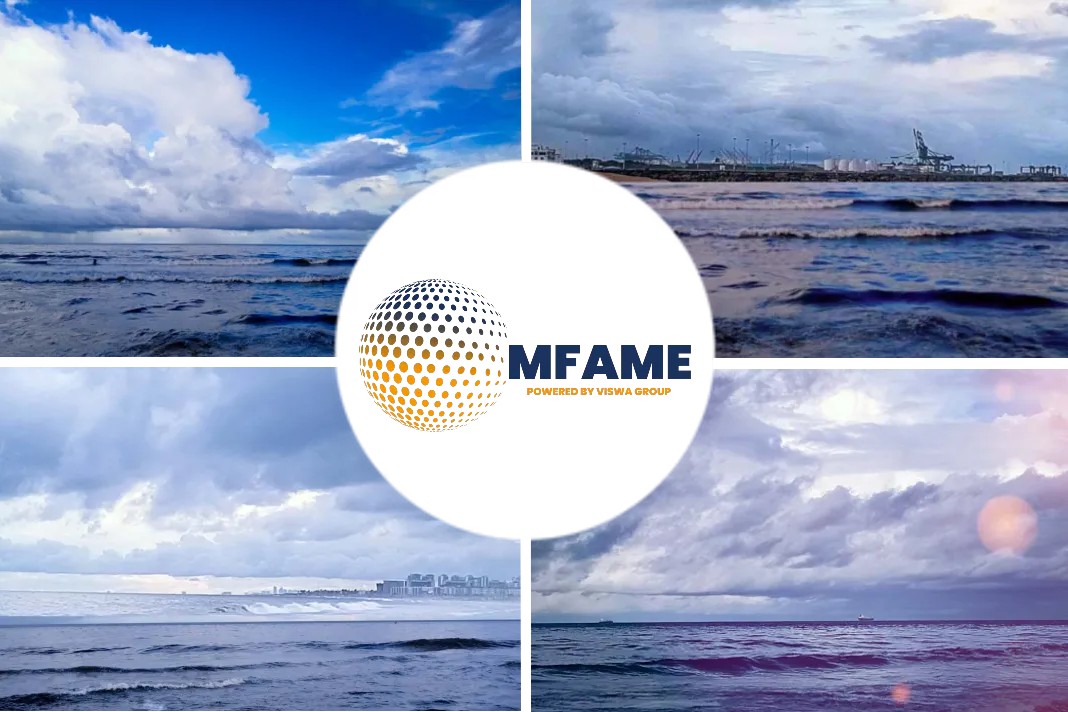No one these days can deny the huge problem plastics poses to our planet and oceans. Marine plastics are suffocating coral propyls, smothering the ocean floor, strangling and killing marine life. Further up the food chain, plastics are entering our bodies, reports the UK Chamber of Shipping.
According to the University of Ghent, the annual dietary exposure for European shellfish consumers can amount to 11,000 microplastics per year. While studies into how these particles affect us are still in their infancy, there is evidence, at least in animals, microplastics can cross the hardy membrane that protects the brain from foreign bodies that enter the bloodstream.
But where are all these marine plastics coming from?
There are an estimated 12.7 million tons of plastic that end up in our oceans each year. Around 80 percent of this is attributed to coming from land, with the remaining 20 percent from marine sources. It has been over 30 years since MARPOL Annex V prohibited the discharge of plastics into the sea from ships, yet in 2020 we are still battling the problem from vessels of varying sizes.
So what can the maritime industry and regulators do to halt the increase of marine plastics before it is too late?
Improved collection of ship waste is certainly one way. The European Commission’s new plan to be adopted by 28 June 2021, requires ships to pay an indirect fee, irrespective of delivery of waste. This covers all ship waste except for cargo residues and wastes from scrubbers. Short sea shipping, as well as ‘green ships’, are entitled to reduced port fees (rules to be set up by an implementing act).
If there are no savings to be made, why bother breaking the law?
Of course, not everything needs to be in plastics in the first place. Going to the good old days of using oak barrels for storing food and water may seem an absurd idea in this day and age, but does the alternative have to be plastic containers? Do ships really need to be one of the contributors of the 36 billion beverage bottles used each year, or of the 16 billion coffee cups – and these are just EU figures.
Cutting down on single-use bottles made of Polyethylene terephthalate (PET), used to fabricate beverage containers, especially bottled water is a good place to start.
Often, it is the perception of the crew that bottled water is best, rather than the quality of the water that is the problem. Providing good quality filtered water at cooler stations, which is regularly tested and monitored by a designated person, would go a long way to change this misconception but it cannot work on its own. Its needs to be reinforced by litter awareness education for every ship’s crew member.
Seafarers oblivious to the problem of marine plastics
Seafarers, like many on land, don’t necessarily understand the immense scale of the problem of marine plastics. They are sometimes oblivious as to how livelihoods, fish stocks, coral propyls, and ocean health are intertwined.
Often, the connection between one’s own actions and the consequence this has on our oceans is not apparent. But the seas have no boundaries. Throwing what seems like an innocuous cigarette butt from the deck of a ship into the middle of the Atlantic Ocean on the face of it, does not seem like a big deal, but collectively, the consequences of them may be felt on the other side of the world.
And, since cigarette butts are made of cellulose acetate fibers, (a plastic), which does not biodegrade, it would add to the four trillion cigarette butts estimated to be in our seas.
Abandoned, lost, or discarded fishing is a major contributor to marine plastics. Fishing gear such as nets or traps not only kills marine life but is a hazard to navigation from the entanglement of propellers.
GloLitter project
The GloLitter project launched by the IMO and the Food and Agriculture Organization of the United Nations (FAO) is looking at new methods to ensure compliance by the global fishing fleets. Such as the marking of fishing gear and tracking it back to its owners, if discarded.
Identifiers of vessel registration details and the IMO number are being considered. While these guidelines are currently voluntary, their positive effect in the fight to reduce marine plastic pollutions would be considerable, if adopted worldwide.
If we are going to take a proactive approach to reverse the trend of the ever-increasing tsunami of marine plastics, everyone and every industry will need to play their part.
But, a really important avenue for shipping companies is the decreased use of single-use plastics. That is why I was so pleased to join the UK Chamber of Shipping for the launch of their Single-Use Plastics Charter. The industry is showing its commitment to reducing single-use plastics.
Did you subscribe to our daily newsletter?
It’s Free! Click here to Subscribe!
Source: UK Chamber of Shipping






















